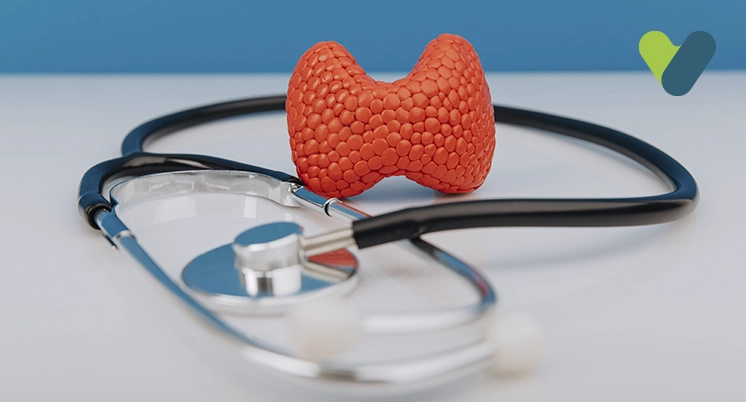Anita’s younger sister accidentally drank some bad water and ended up being sick. She was worried about her sister, as she knew Typhoid could spread through contaminated water. To make sure that her sister’s health and wellness would not be affected, Anita takes her to a doctor.
The doctor diagnoses her with Typhoid and prescribes her the necessary medicines. He tells her that it was a good thing that she brought her to the hospital. Her sister takes her medication regularly and gets better after a few days.
What Is Typhoid Fever?
Typhoid fever is a disease that is transmitted via infected water or food. The main bacteria that can cause Typhoid fever is known as Salmonella typhi. In developed nations, typhoid fever is uncommon. In developing countries, it remains a severe health danger, particularly for children. Typhoid fever is caused by contaminated water and food, as well as direct contact with an infectious individual. It is a disease that can be dealt with, but without typhoid treatment, it can cause a lot of harm to your health and wellness.Usually, persons with typhoid fever improve within a few days of starting antibiotic medication, although a tiny percentage of them could die as a result of problems. Typhoid fever vaccinations are only moderately effective. Vaccines are often restricted for persons who may be susceptible to the illness or who will be traveling to locations where typhoid is prevalent.
11 Symptoms of Typhoid Fever
The following are some of the symptoms and signs that you might have Typhoid fever:- Fever which begins low and gradually rises over the day, potentially hitting 104.9 ° F.
- Headache
- Fatigue and exhaustion
- Muscular pain
- Sweating
- Dry Coughing
- Hunger loss and losing weight
- stomach ache
- Constipation or diarrhea
- Rashes
- Extremely Bloated Stomach
Top 5 Treatment of Typhoid Fever
Treatment of Typhoid fever is usually done with antibiotics. However, your medical professional will determine the appropriate medication for you depending on your age, previous health and wellness, and the severity of your illness.It's necessary to keep in mind that typhoid fever's dangers don't go away once the signs fade. It's possible that you're still harboring the bacterium. It's also possible that the sickness will reoccur. You could also spread the sickness to others. You should follow your doctor's instructions for taking typhoid fever antibiotics, cleanse your hands after using the restroom, and have a set of stool cultures performed.
Antibiotics that are frequently administered for treatment of Typhoid fever involve:
Ciprofloxacin (Cipro): This is a commonly prescribed antibiotic for non-pregnant individuals. Ofloxacin, a related antibiotic, might also be administered. However, numerous Salmonella typhi bacteria, especially those found in Southeast Asia, are not resistant anymore to typhoid fever antibiotics of this sort.
Azithromycin (Zithromax): If a patient is not able to consume ciprofloxacin or if the germs are resistant to ciprofloxacin, azithromycin (Zithromax) may be employed.
Ceftriaxone: This injected drug provides an alternative to ciprofloxacin for more severe or dangerous illnesses, as well as for individuals who aren't ciprofloxacin suitable, such as kids.
These medications can have negative side effects, and lengthy use might develop antibiotic-resistant germs.
In order to maintain your health and wellness, additional options for typhoid treatment involve:
Consuming plenty of water: This aids in the prevention of dehydration caused by a persistent fever and constipation. You may have to take liquids through a vein if you're very dehydrated.
Surgery: You'll require surgery to patch the wound if your intestines are ripped.
Prevention Methods for Typhoid Fever
Typhoid fever can be prevented and controlled with clean water, good sanitation, and appropriate hospital attention. Typhoid fever treatment and food are also closely related, so taking care of what you eat is also important. However, in several underdeveloped countries, achieving these goals may be challenging. If you reside in or plan to go to locations wherein typhoid disease is a serious threat, you should get vaccinated.The main vaccines available for Typhoid are:
- Ty21a
- ViCPS
- Washing hands in warm, soapy water on a regular basis is the most effective technique to avoid disease. Prior to consuming or cooking food, as well as after using the restroom, wash your hands. If water isn't accessible, bring an alcohol-based sanitizer.
- Consuming unclean water is not a good idea. In locations wherein typhoid disease is endemic, polluted water supply is a genuine issue. As a result, limit yourself to mineral water, tinned or bottled fizzy drinks, wine, or beer. Drinking water that has been carbonated is cleaner than bottled water that has not been carbonated.
- Request beverages that aren't served with ice. Clean your teeth with bottled water and avoid swallowing water in the bath.
- Raw vegetables and fruit should be avoided. Resist vegetables and fruit for which you can't remove its skin, particularly lettuce, because they might be rinsed in polluted water. To be on the safe side, stay away from raw foods totally.
- Typhoid fever treatment and food that you eat can make a big difference if you contract this disease. Try to pick meals that are hot. Anything that has been kept or delivered at room temp should be avoided. The finest meals are those that are scorching hot. And, while there's no assurance that food being served in the top restaurants is safe, it's recommended to avoid local cuisine because it's more prone to contamination.
- You should be aware of the location of the physicians. Find out about hospital attention in the locations you'll be visiting ahead of time, and keep a list of suggested doctors' names, locations, and contact information with you.


